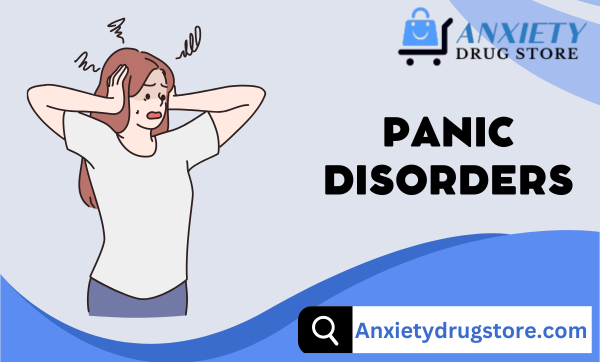
Pain Management Tips for Everyday Life
Dealing with chronic pain can be incredibly challenging and can…

Panic disorders are often misunderstood and stigmatized, but they affect millions of people worldwide. Dealing with panic disorders can be challenging, but with the right support and strategies, individuals can find hope, healing, and harmony in their lives.
Understanding Panic Disorders
Panic disorders are characterized by sudden and repeated attacks of fear that can last for several minutes or longer. These panic attacks are accompanied by physical symptoms such as rapid heart rate, sweating, trembling, and difficulty breathing. People with panic disorders often live in fear of the next attack, which can significantly impact their daily lives.
Seeking Professional Help
The first step in dealing with a panic disorder is seeking professional help. Consulting with a mental health professional can provide an accurate diagnosis and create a personalized treatment plan. This plan may include therapy, medication, or a combination of both. It’s essential for individuals with panic disorders to understand that they are not alone and that help is available.
Finding Hope in Therapy
Therapy, particularly cognitive-behavioral therapy (CBT), has been found to be highly effective in treating panic disorders. CBT helps individuals understand the connection between their thoughts, feelings, and behaviors, and provides them with coping strategies to manage and reduce panic attacks. Through therapy, individuals can find hope in understanding that they have the power to change their thoughts and reactions.
Exploring Medication Options
In some cases, medication may be prescribed to help manage the symptoms of panic disorders. Antidepressants, anti-anxiety medications, and beta-blockers are among the medications commonly used to treat panic disorders. It’s essential for individuals to work closely with their healthcare provider to find the right medication and dosage that works for them.
Embracing Self-Care Practices
Self-care plays a crucial role in managing panic disorders. Engaging in regular physical activity, practicing relaxation techniques such as deep breathing and meditation, maintaining a healthy diet, and getting an adequate amount of sleep can all help reduce the frequency and intensity of panic attacks. Additionally, avoiding caffeine, nicotine, and alcohol can also contribute to better management of panic disorders.
Building a Support System
Having a strong support system can make a significant difference in the lives of individuals with panic disorders. This support system may consist of family members, friends, support groups, or online communities. Connecting with others who understand what they are going through can provide individuals with hope, encouragement, and a sense of belonging.
Finding Harmony through Lifestyle Changes
Making positive lifestyle changes can contribute to finding harmony while living with panic disorders. This may involve setting realistic goals, managing stress effectively, and creating a balanced routine. Engaging in hobbies, pursuing creative outlets, and practicing mindfulness can also contribute to a sense of harmony and well-being.
Spreading Awareness and Understanding
In order to reduce stigma and increase understanding, it’s essential to spread awareness about panic disorders. Sharing personal stories, participating in advocacy efforts, and promoting mental health education can help create a more supportive and empathetic society for individuals living with panic disorders.
Conclusion: while living with a panic disorder may present challenges, individuals can find hope, healing, and harmony by seeking professional help, embracing therapy and medication options, practicing self-care, building a support system, making lifestyle changes, and spreading awareness. With the right support and strategies, individuals with panic disorders can lead fulfilling and meaningful lives.